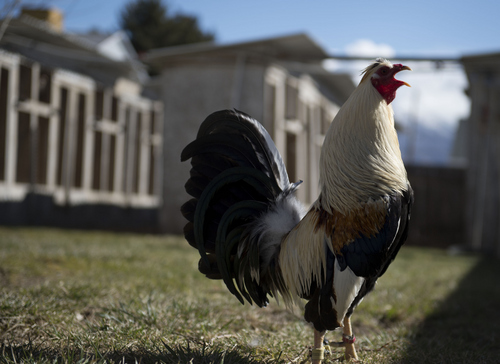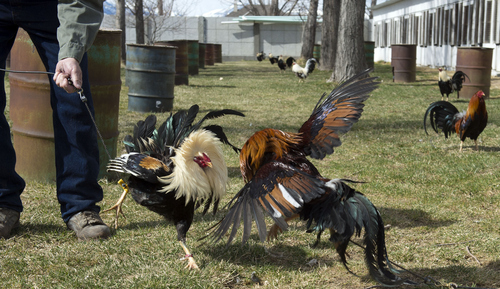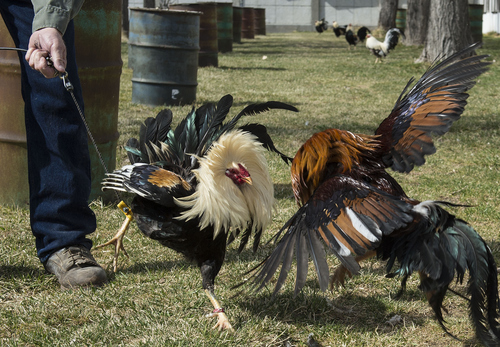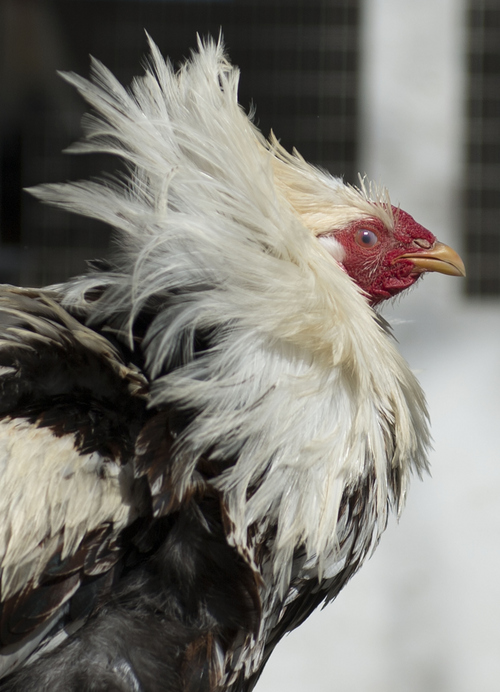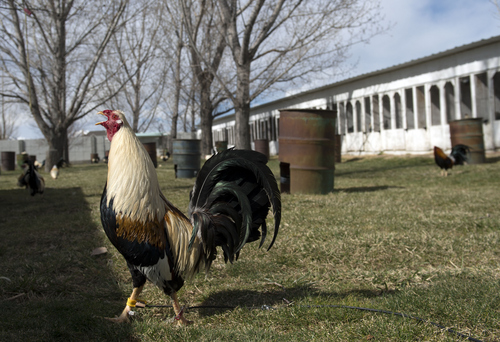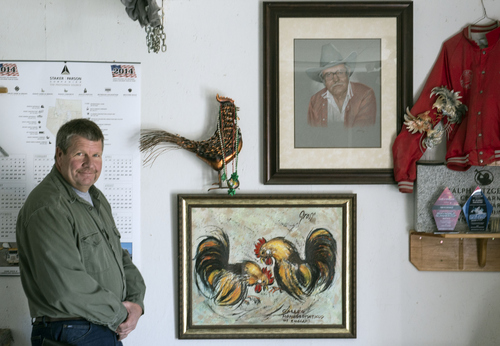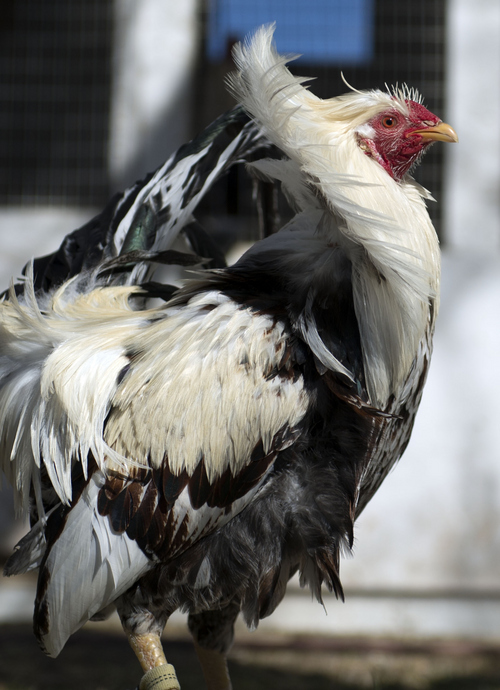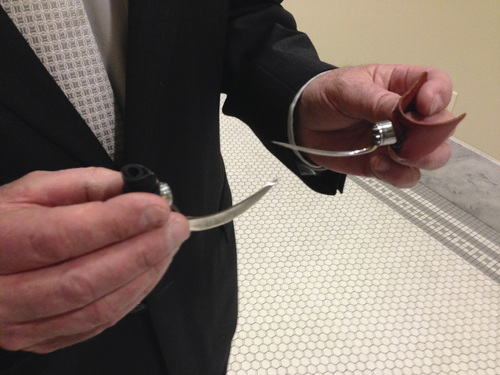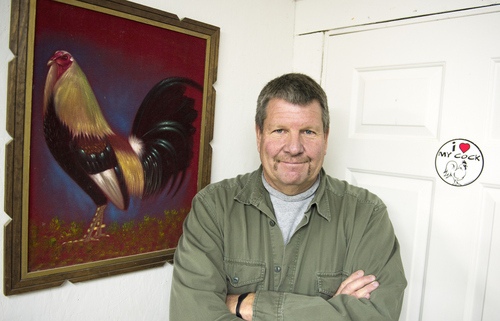This is an archived article that was published on sltrib.com in 2014, and information in the article may be outdated. It is provided only for personal research purposes and may not be reprinted.
Sixty years ago, Jamen White's great grandfather bought a cock. And then he let it fight.
White is a fourth-generation cockfighter. From his great-grandfather's initial purchase, the family's operation has grown to about 300 birds living on his property in Richfield. His grandfather, who lives in Monroe, also has game fowl chickens. And even White's kids, the fifth generation, are into the birds — his 3-year-old daughter has a retired rooster she calls "Killer."
For the Whites and some other Utahns, cockfighting is a traditional sport. It's also one they say is far more innocuous than stereotypes — populated by drug dealers, prostitution and general lawlessness — would suggest, and they don't want to be lumped in with hardened criminals like murderers and rapists.
"It's kind of like a family reunion would be the best way to put it," White said of a typical American cockfight.
But others — including lawmakers and the Humane Society of Utah — describe cockfighting as a ruthless blood sport, an unfortunate leftover from a violent, bygone era. That group wants to clamp down on cockfighting and is currently guiding a law through the Legislature that would increase penalties for fighting chickens.
The debate amounts to a battle over the kind of state Utahns want to live in. It's a conflict about tradition verses animal rights, personal freedom versus safety, and urban life versus rural.
The law
The conflict over cockfighting has come to a head as a result of SB112, a proposal that would increase the penalties for fighting game fowl. Right now, cockfighting can earn practitioners a class B misdemeanor. The new bills would bump it up to a class A. Get busted a second time, and the crime becomes a third-degree felony — punishable by up to five years in prison.
The bill passed in the Senate last month and is currently making its way through the Utah House of Representatives.
Sen. Gene Davis, D-Salt Lake City, is sponsoring the law because he believes cockfighting is a blood sport. It's inhumane, Davis argued during a recent interview, and Utah has more lenient laws than any other state, making it a magnet. Davis wants to change that.
"Do we want to be known as the only place in the west that you can fight roosters?" Davis wondered.
The video below, posted to YouTube last year, shows a cockfight in Guam.
The fighters
But the proposed law has Utah cockfighters crying foul. They say the stereotypes are wrong and cockfighting is something they have been doing for generations. One of those people is Tim Fitzgerald.
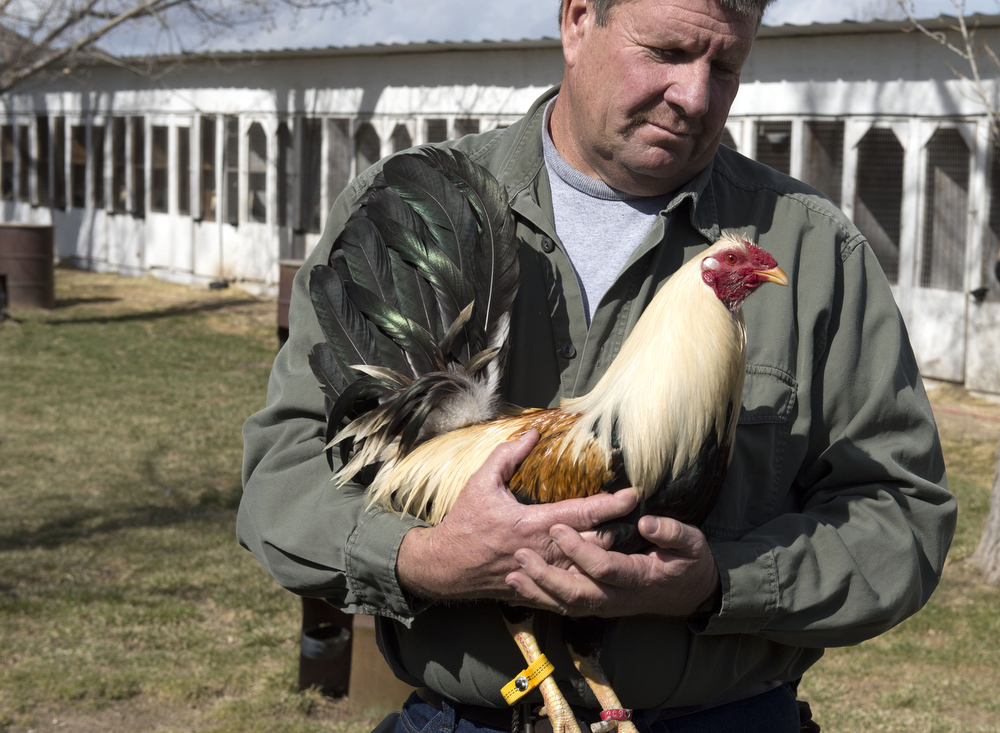
In a semi-rural area of Bluffdale, Fitzgerald tends what looks like a small city of roosters. In a grassy yard, about 20 birds are tethered to the ground, each just out of reach of the others. In rows of coops, dozens more keep up a constant chorus of crowing. As Fitzgerald surveys the scene, he points to the food, water and fresh bedding near the animals.
"They're really well cared for," he says. "I love animals, but I absolutely believe they have a use."
Fitzgerald raises the birds to sell. He said he doesn't fight them in the U.S. because it's illegal — instead he makes a yearly pilgrimage to the Philippines, where cockfighting is a "national pastime."
Fitzgerald and White were both willing to talk game fowl because they believe cockfighters have been on the defense for too long.
"I don't see why they try to put us in the same category as murderers and rapists," White said. "It's not like we're going out and killing somebody. People need to realize they're animals, and that's how they're bred."
The arguments made by White, Fitzgerald and others — including pro-cockfighting activists like David Devereaux — boil down to a few key points:
• Cockfighting is not inhumane, they say. The birds are territorial and aggressive, so fighting is a natural behavior.
• The birds are treated more humanely than those in industrial food facilities, where they are kept in small cages and have beaks and toes clipped to prevent fighting.
• Cockfighting doesn't attract a criminal crowd, proponents argue. White said he has been to 1,000 fights in various states, including Utah, and never saw drugs or prostitution. Instead, he said, it's "usually just the good old boys."
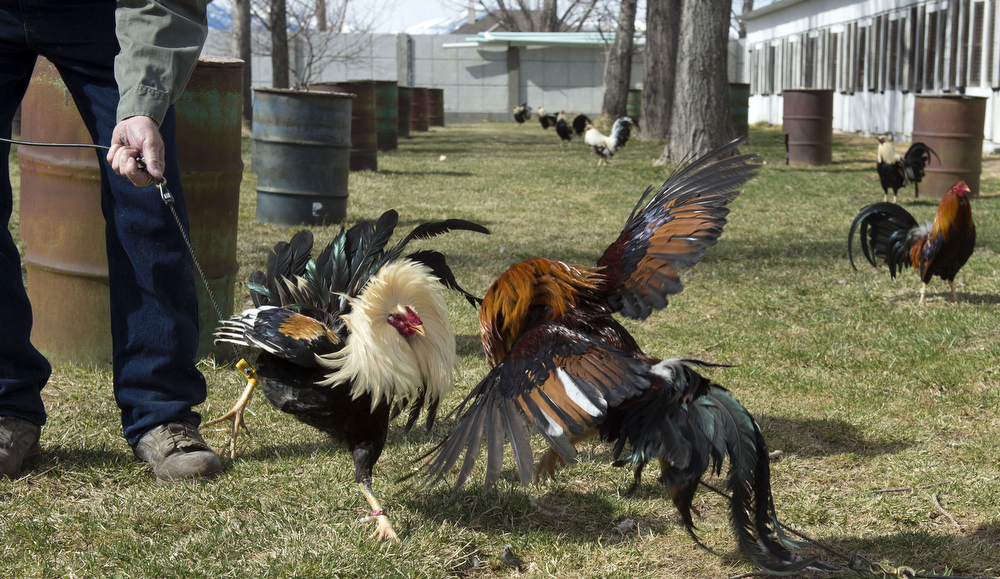
The opponents
Davis and other supporters of the new law aren't buying those arguments.
During a recent legislative committee meeting, Humane Society of Utah Director Gene Baierschmidt showed off two weapons or "gaffs" owners attach to the birds' legs. The metal pieces are long, sharp spikes that Baierschmidt said rip the birds apart as they kick at each other. Fans of cockfighting say the blades speed death and make matches more humane, but Baierschmidt doesn't agree.
"It's like taking a hammer and pounding a nail into a chicken," Baierschmidt said, adding that the birds sometimes bleed to death.
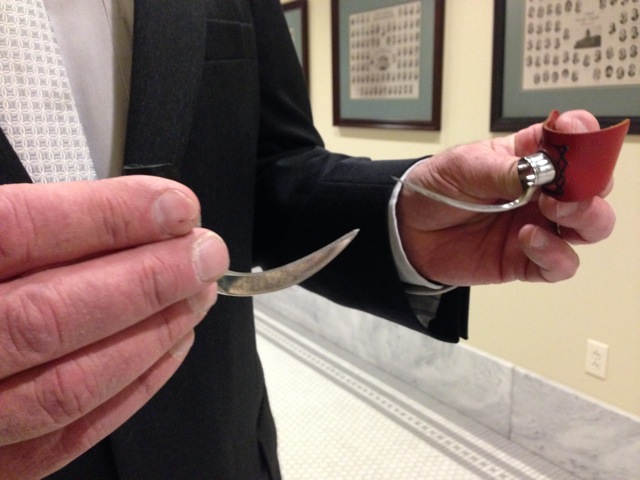
As far as Baierschmidt is concerned, cockfighting is brutal and inhumane, a way to watch birds suffer and die purely for entertainment.
Davis pointed out that cockfighting is already against the law, meaning any fights going on now are inherently criminal in nature. The laws are weak, however, and he said the minimal potential punishment recently led a cockfighting magazine to single out Utah as a good place for fighting. The justification was that in Utah cockfighting is only a misdemeanor while in other states it's a felony.
Davis also pointed to a recent case in New York where police broke up a large cock-fighting operation that included thousands of birds. His point was that cockfighting is going on, including in Utah, even if it has faded from public life.
"It has gone underground," he said. "But I don't think it's to our advantage to be the only state in the western United States to allow this."
jdalrymple@sltrib.com
Twitter: @jimmycdii


